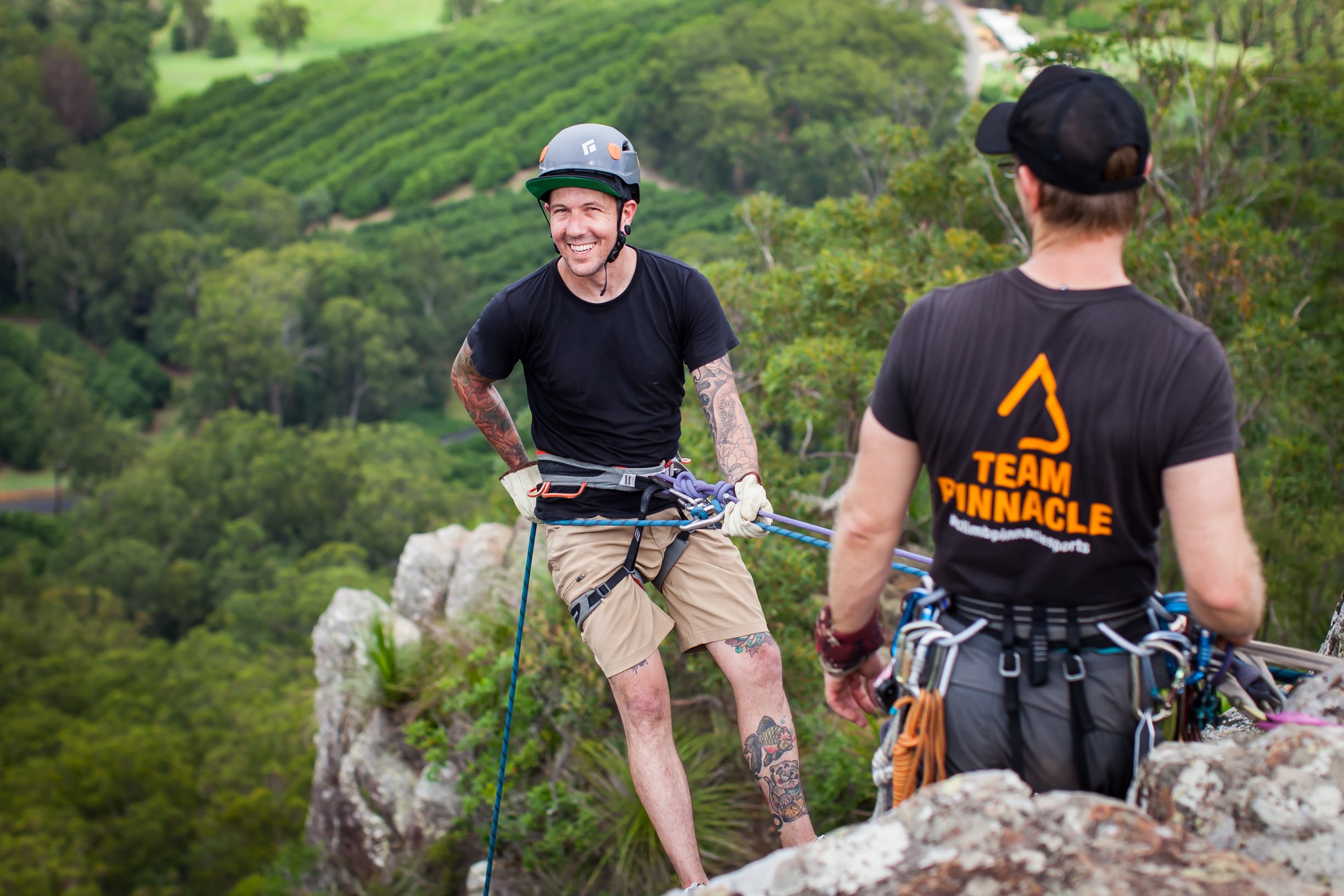written by Pinnacle Ambassador Ryan Siacci
I swear that if I hear the phrase “these uncertain times” again, I’m going to flip my lid. But it’s certainly true that being cooped up in the house can be a particularly trying experience for active people. With no end in sight for the current lockdown, we’re all going to have to dig deep into our stores of mental resilience.
It might seem like concepts such as resilience, focus and mindfulness should come naturally to climbers, but that’s not necessarily true. Each and every climber has mental foibles which limit their performance, however the brain, like any other part of your body, can be trained. It might not be as sexy as hangboarding, campusing or pulling mad front levers on your pinkies, but mental training will often yield equal or better results. As Wolfgang Güllich said, “The brain is the most important muscle for climbing”, and he knew a thing or two about the sport.
With this in mind, why not spend part of your quarantine brushing up on some mental training techniques? We’ve got quite a few books in store, each written by leading climbing coaches and sports psychologists. These include Mastermind by Jerry Moffat, Vertical Mind by Don McGrath and Jeff Elison, The Rock Warrior’s Way by Arno Ilgner and 9 out of 10 Climbers Make the Same Mistakes by Dave Macleod.

The first time I came into contact with The Rock Warrior’s Way was during one of my first overseas climbing trips in Spain. I picked it up, quickly flicked through the contents, and immediately dismissed it as hippie nonsense – just a bunch of fuzzy talk about chakras, power centres, feng shui and all that guff. But not long afterward, the book was recommended to me by one of the most hard-nosed pragmatists I’ve ever met. I reasoned that if he could find use for The Rock Warrior’s Way, I could also. I then revisited the book with a more open mind and was far from disappointed.
The Rock Warrior’s Way details the many ways in which climbers defeat themselves with their own thoughts, and more importantly, ways to combat these negative actions. In particular, Ilgner encourages us to ignore our ego and to reframe our notions of success and failure. His key advice is to seek growth rather than results, a notion which might seem counter-intuitive in the goal-oriented sport of climbing. As well as exploring these themes, the book also includes several practical exercises which one can implement, depending on how advanced one’s mental game is.
I re-read The Rock Warrior’s Way at least once a year to refresh my mind and enhance my mental game. It completely changed my outlook on what climbing means, and has helped me to progressively work on my limitations and flaws. The lessons found inside can also be applied to other sports, or indeed to totally unrelated areas of life such as relationships or careers.

My well-worn copy of The Rock Warrior's Way, seen here in its natural habitat.
At first, the themes found in The Rock Warriors Way can seem a little vague and ephemeral, but I have found that they solidify with each reading. Alternatively, the condensed version of this book is called Espresso Lessons, a more direct text which focuses on the practical aspects. Or if you’re really looking for a book with a bit more straight shooting, try 9 out of 10 Climbers Make the Same Mistakes by Dave Macleod.
In comparison, 9 out of 10 relies less on philosophy to make its point, instead focusing on the tactical aspects of the sport. That doesn’t mean the text is necessarily shallow, it just comes from a different perspective. Dave Macleod is a bit of a renaissance man who has climbed at elite levels in bouldering, sport, trad and alpine disciplines. He also holds degrees in Sports Science, Physiology and Exercise Science, so I reckon he probably knows what he’s talking about.
Climbing training has never been an exact science, and Macleod’s book attempts to whittle down the current surplus of information in order to sort fact from fiction. Although it has a tendency to waffle a bit and is perhaps not the best written of the available titles, it does a decent job of crystallising some tactical, technical and cognitive concepts into some usable truth nuggets. More practical readers will find that the language and topics covered in 9 out of 10 take a more direct and frank approach.
I continue to enjoy both of these books and find them invaluable. Used in tandem, they present opposite sides of the same coin – one philosophical and intuitive, the other practical and analytical. It might be a little or it might be a lot, but both books are sure to stimulate your most important climbing muscle.
P.S. I’m yet to read Mastermind or Vertical Mind, so if you’ve given them a flick, please send us your opinion of these titles!
Looking for more great reads? Subscribe to our newsletter to stay up to date with the latest climbing tech, crag recommendations and upcoming events.








